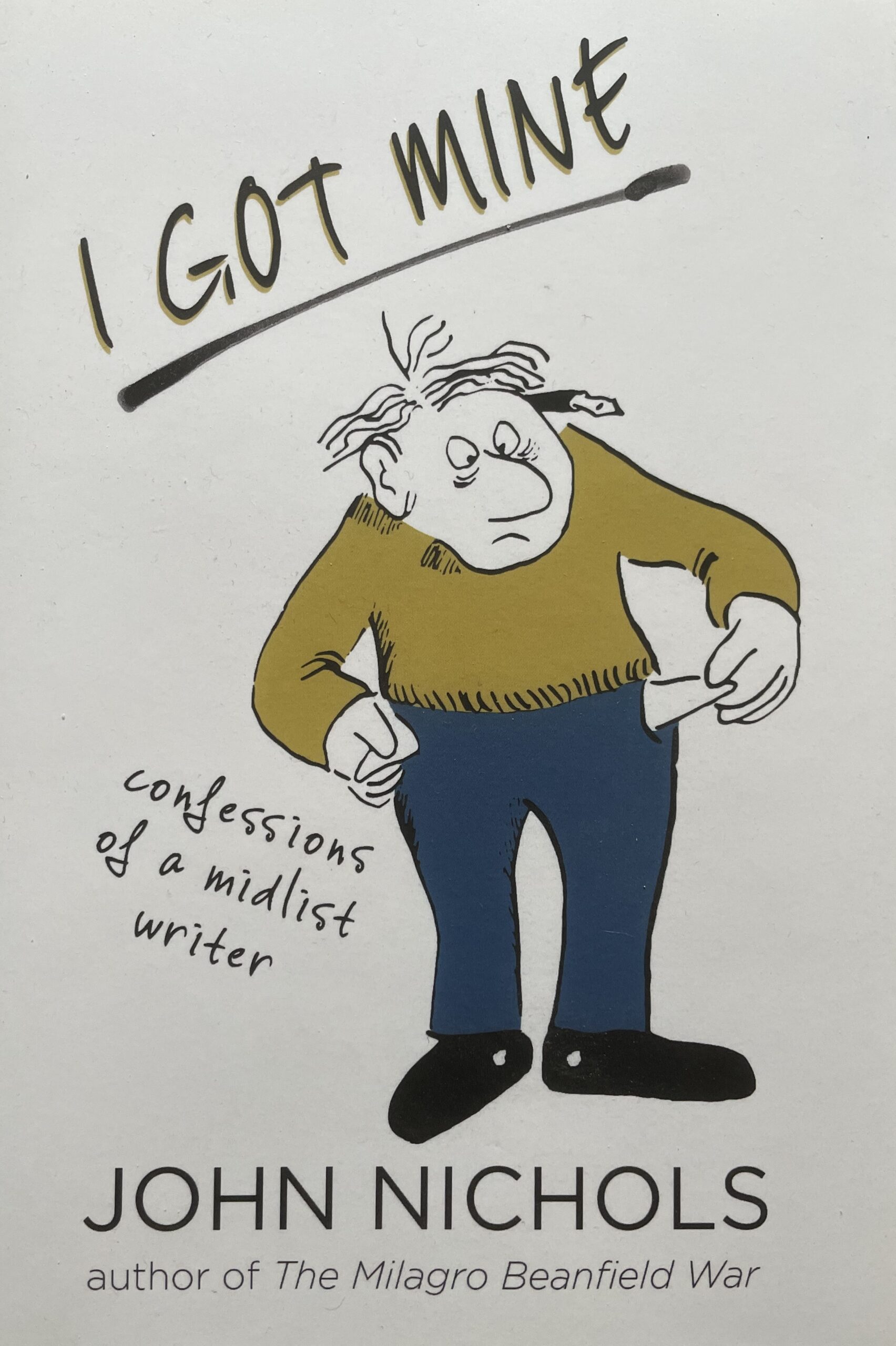How does one approach an essential issue in organizing a life? In this case, the literary art.
A true measure of artistic integrity is the degree of effort put into the organization. An existential part comes in based on the degree to which the artist willingly accepts the consequences of actions taken.
An Ideal of Living
In my sliver of art history knowledge, the winner of the truth-in-life award goes to the painter Clay Spohn (pronounced “spone”), one of Abstract Expressionism’s first practitioners. He embraced the AE ideal of living as an anti-establishment outsider, utterly unwilling (or unable?) to sell out to the reigning contemporary art decision-makers among the media, museums, and dealers.
His living the truth-in-life path, to a degree unimaginable to most of us, meant foregoing the potential wealth and fame latched onto by many of his contemporaries. He died in poverty and until he is rediscovered by art historians with media clout—and more importantly exploited by dealers who can Van Gogh him into profitability—he will remain known to only a few.
Spohn lived on the fringes of possible discovery, highly respected by his peers. In literary terms, he was a mid-list author.
Life Review
The mid-lister has a couple of ways to review what has happened to him (or her or they). One is to despair at being forgotten or never appropriately acknowledged in the first place. Another is to ask: What, me worry?
A couple of decades ago I asked the novelist and all-around Western character Max Evans about this subject. Like Spohn, he was extraordinary in his way. If Evans had been transformed into a character in a John Nichols novel, critics would have pounced, denouncing the author for the absurd over-the-top creation.
A university press had just published his long and rather puzzling novel Bluefeather Fellini. I was likely one of only a few persons to purchase the two-volume set. Max was well aware of its likely commercial failure. I ventured to ask if this caused him concern. I recall that he said words to the effect of: Not all that much. After all, he had written the story and found a publisher for it. (More than many of us accomplish.) That ended his power over it. He explained that it eventually would or would not get recognized. He had faith that Bluefeather eventually would find an audience, even if not in his lifetime.
Que sera, sera, whatever will be will etc. Maybe he was a Buddhist? In any event, the inherent absurdity of the human condition was often the theme of his work; he had no reason to exempt himself from that.
I met Max while researching a book on his friend, the prolific sculptor Patrociño Barela. (Barela was another improbable character, but very much real.) I didn’t ask if he had ever met Spohn, but they were in Taos at the same time so they likely were acquainted.
I would like to organize a fantasy conference on the creative process to which I will invite as panelists: Spohn, Evans, Barela, and John Nichols. All masters of their various creative arts.
Panel Discussion
In the meantime, we have John Nichols’ new book on the creative life, I Got Mine (University of New Mexico Press, 2022). Some of what appears in the memoir is unflattering to its author. Even if I had known all of what he wrote, I would not have published it for fear of getting sued. He is presumably safe from legal action from himself.
One subject raised by the novelist is the radicalism of the true artist. This radicalism is expressed (or lived) as honesty, itself a radical choice.
Another subject is that of nature in its wild scenic form. Arising from this is the radical notion that all actions taken by humans are natural. (This is an essential tenet of my work in Generally True Patterns.) This is an essential part of humanness, deeper than moral considerations of good and evil.
Taking a couple of examples of my own, the actions of St. Francis and Hitler have different ramifications in moral terms. What the two of them have in common in my view of radical natural history is that both behaved “naturally.”
If, as Nichols posits (assuming I am understanding him), we are inseparable from nature, then our actions, abhorrent or loving, are equally natural. This does not restrain us from criticizing aberrant behavior (e.g., fascism). But every time we try to separate ourselves from nature, we get into even worst trouble.
What if, as part of my fantasy panel plan, we were to confront Nichols and the others on the following question: A hundred years from now, if your legacy could consist of just one of two possible outcomes, would you rather be known as a radical artist (living the truth path) or as an important writer of your time? This is, of course, an impossible and unfair question—existential!
I Got Mine, Confessions of a midlist writer, John Nichols

